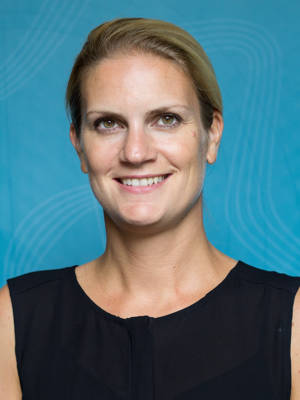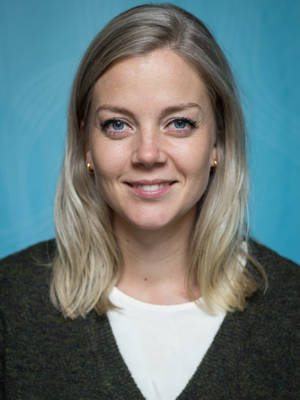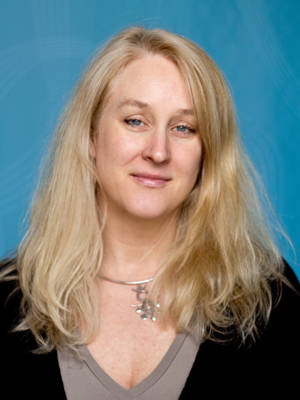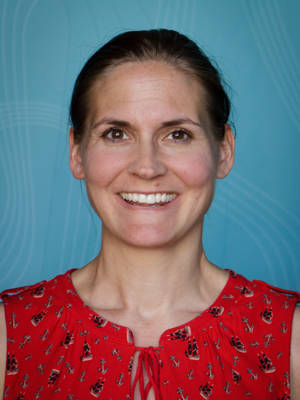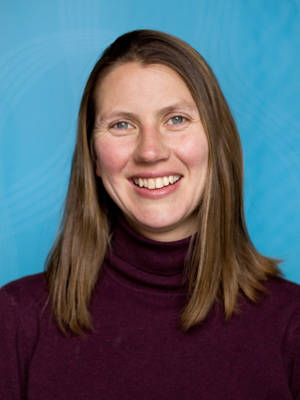The Democratic Republic of the Congo (DRC) has been called one of the most dangerous places in the world to be a woman. Eastern DRC is a region known for high levels of sexual and gender-based violence. Various programs have been initiatated to help survivors of sexual violence. In this project Norwegian and Congolese researchers will collaborate on research to improve the situation for women in Eastern DRC by studying for survivors of sexual violence and others are benefitting from support programs.
Recent Activity
June 2016
Successful presentation of work in progress at the Network of Peace Scientists (NEPS) conference in Milan, Italy, 20-22 June 2016.
Christine Amisi and Ragnhild Nordås presented ongoing work in the project to the NEPS conference, focusing on some of the key preliminary results from the SSSV survey - Survey of Survivors of Sexual Violenc - and the City of Joy survey.
Christine spent two days at PRIO discussing the joint project and presenting the work on a brownbag at PRIO on 17 June 2016. The brownbag was well attended and garned a lot of interest from both PRIO researchers and other visitors.
Christine Amisi from ICART in Bukavu (DRC) visits PRIO.
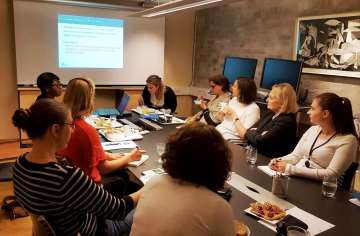
Dr. Christine Amisi from ICART in Bukavu (DRC) visits PRIO. Photo: PRIO.
2015
In 2015, the project has made significant progress.
Of the most important milestones is a survey of 1200 women in South Kivu province (the SSSV survey - Survey of Survivors of Sexual Violence), which was carried out in July 2015 by the Congolese partner using locally trained enumerators. The survey was done in the territories of Kalehe, Kabare, Walungu, and Mwenga.
For the next few months, PRIO and ICART researchers will be collaborating on analyzing the data and writing joint papers and briefs based on this material.
The initial descriptive statistics were presented to various key collaborators and others in Bukavu in November 2015.
The second important recent milestone is 3-week training conducted in November 2015.
The training focused on various topics, including statistical methods using the software R, making survey questionnaires on tablets using ODK software, research design for social sciences, and academic presentations.
Gudrun Østby recently blogged (in Norwegian) about training we did in Bukavu DRC in November 2015. Read the blog post here.
Discussing descriptive findings from the SSSV survey with local students and researchers at ICART. Instructors are John Quattrochi and Gudrun Østby.
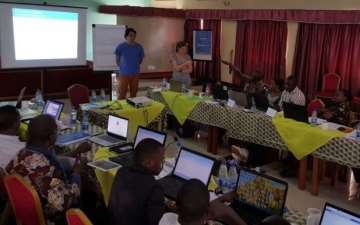
Discussing descriptive findings from the SSSV survey with local students and researchers at ICART. Instructors are John Quattrochi and Gudrun Østby. Photo: PRIO.
About the Project
The project is based on a partnership between the Peace Research Institute Oslo (PRIO) and the International Centre for Advanced Research and Training (ICART) in DRC. This centre is a collaborative initiative between researchers from the Panzi Hospital, Panzi Foundation DRC, and the Université Evangelique en Afrique in Bukavu, DRC.
Dr. Denis Mukwege, who represents the Congolese partner in this project, is the founder and Medical Director of the General Referral Hospital Panzi in Bukavu, DRC, where he has been working with treating survivors of sexual violence and women with severe gynecological problems for over 15 years. Apart from having treated thousands of women and being considered one of the globally leading experts on repairing the physical damage from rape and sexual violence, Dr Mukwege is one of the world’s most visible advocates for women’s rights and quality health care for all.
The project has three parts:
- building local research capacity through workshops and intensive training of ICART researchers in topics such as research methodology and academic publishing, particularly for female researchers;
- investigating how survivors of sexual and gender-based violence can be empowered and reintegrated into society through socioeconomic support programs; and
- understanding gender relations in the area more broadly by considering both gender roles and intimate partner violence. Here we will explore general perceptions and attitudes towards gender roles and the potential for strengthening gender equality.
We combine surveys and in-depth interviews. Research is being carried out and disseminated through close collaboration between researchers based in Norway and the DRC. Our aim is that findings from the project can be used by policy-makers and NGOs to set up more efficient programs to empower women and prevent sexual violence in the future. The project will generate knowledge within a field of critical importance globally and for Norway's development aid policy, and lessons from the project will also be relevant beyond the Congolese context.
PRIO Project Team with associated experts. From left: Ingrid Samset (University of Limerick), Gudrun Østby, Siri Aas Rustad, Angelique Awa (independent expert), Ragnhild Nordås and Carl Henrik Knutsen (University of Oslo).
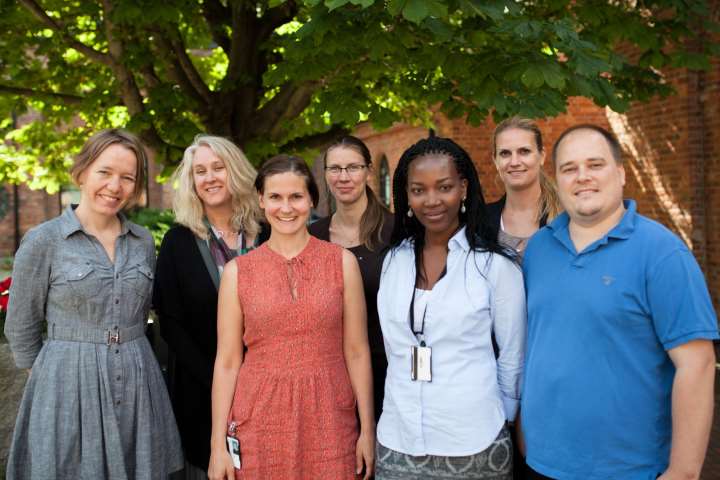
PRIOProject Team with associated experts. Fromleft: Ingrid Samset (University of Limerick), Gudrun Østby, Siri Aas Rustad,Angelique Awa (independent expert), *RagnhildNordås and Carl Henrik Knutsen (University of Oslo).*Photo: PRIO.
ICART project team. From left: Susanne Allden, Clovis Amani Kasherwa, Rosalie Biaba Apasa, Aline Cikara Mutokambali, Ragnhild Nordås (visiting from PRIO), Dr. Tina Amisi and Ali Bitenga. In 2015, John Quattrochi joined the team (not in the picture).
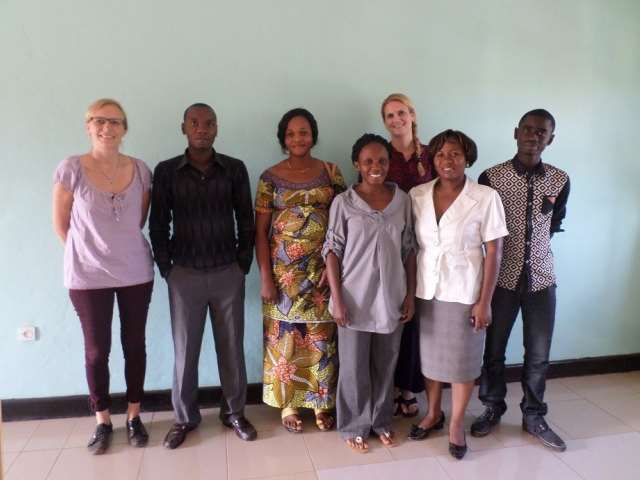
ICARTproject team. From left: Susanne Allden, Clovis Amani Kasherwa , Rosalie Biaba Apasa , Aline Cikara Mutokambali, Ragnhild Nordås (visiting fromPRIO), Dr. Tina Amisi and Ali Bitenga. *In 2015, John Quattrochi joined the team (not inthe picture).*Photo: PRIO.
